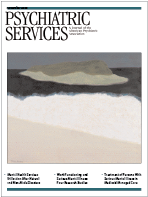What Price Better Health? Hazards of the Research Imperative
Interest in medical research has reached an unprecedented level in recent years. This increase in interest, combined with recognition of the benefits afforded by research, has provided an impetus to increase funding for medical research to 10 to 15 percent of the annual federal budget. In the context of economic recession and competing demands on available funds, What Price Better Health? Hazards of the Research Imperative, by Daniel Callahan, highlights important ethical considerations, including the nature of our research agenda, priorities for research goals, the manner in which research funding is allocated, collaborative efforts of public and private sectors, the difficulties and paucity of good risk-benefit analysis, and the moral challenge of controversial research agendas, such as stem cell research or research in developing countries. Callahan challenges us to consider research within the context of other social and economic needs and to move beyond the desire to prolong life, defy death, and eradicate disease.
Drawing on many historical examples to support his argument, Callahan inspires the reader with an interesting, readable, and comprehensive account of the prominent position of medical research in contemporary society. At the foundation of Callahan's discussion is the idea that American society's regard for science and the acquisition of new knowledge has reached the point where medical research has become an imperative. Indeed, Callahan contends that Americans have a particular "predilection for scientific progress, technical innovation, and improved health." Extending the boundaries of medical science is viewed not only as a moral good but also as a moral obligation.
Callahan acknowledges that his purpose is not to discredit research (he recognizes the benefit it can produce) but, rather, to set the record straight and provide an honest portrayal of the positive and negative aspects of this enterprise—the "light" and "dark," as he calls them. Callahan focuses on the "dark," because he contends that society has already affirmed the good in research. Instead of blaming researchers for the research agenda that pervades society, Callahan builds an argument that places responsibility for the current situation on a cultural ideology that idolizes innovative and cutting-edge scientific and academic pursuits without adequate ethical discourse.
What Price Better Health? takes the reader historically and philosophically beyond the Belmont report (1), which addressed the protection of human research subjects, to a far greater understanding of the ethical issues pertaining to research. For example, discussing studies of the genetics of antisocial behavior, Callahan considers not only the risk to study participants but also the consequences of this kind of research for society as a whole. Callahan acknowledges the pressure on individuals to succeed in academic medicine and the ramifications of this pressure for setting research agendas and results. He shows the reader that scandals are not merely events of the past.
It is not essential that readers embrace the author's arguments to benefit from reading this book, because Callahan provokes some valuable debate on important ethical issues for anyone who is involved in research. The book should be of interest to researchers, graduate students, and health professionals as well as individuals who are interested in how the government spends its money and prioritizes its scientific pursuits.
Dr. Williams is affiliated with the University of Alabama, division of geriatric medicine, and with the Birmingham Department of Veterans Affairs Medical Center.
1. The Belmont Report: Ethical Principles and Guidelines for the Protection of Human Subjects of Research. Washington, DC, Department of Health, Education, and Welfare, 1979. Available at www. hhs.gov/ohrp/humansubjects/guidance/belmont.htmGoogle Scholar



